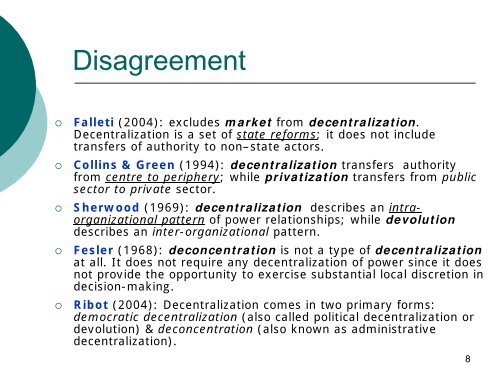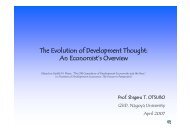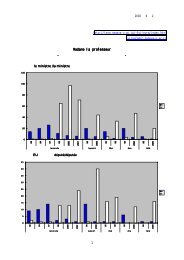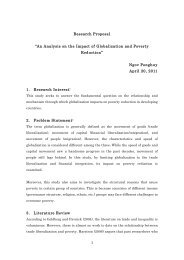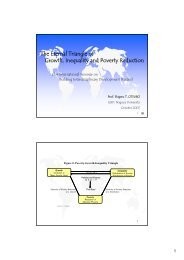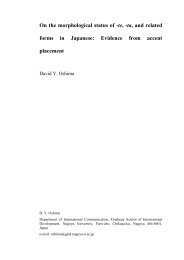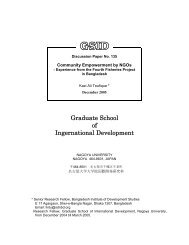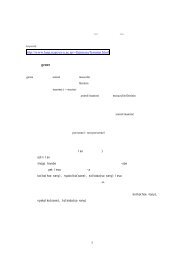Rethinking Decentralization in the Unitary States
Rethinking Decentralization in the Unitary States
Rethinking Decentralization in the Unitary States
Create successful ePaper yourself
Turn your PDF publications into a flip-book with our unique Google optimized e-Paper software.
Disagreement<br />
◦ Falleti (2004): excludes market from decentralization.<br />
<strong>Decentralization</strong> is a set of state reforms; it does not <strong>in</strong>clude<br />
transfers of authority to non–state actors.<br />
◦ Coll<strong>in</strong>s & Green (1994): decentralization transfers authority<br />
from centre to periphery; while privatization transfers from public<br />
sector to private sector.<br />
◦ Sherwood (1969): decentralization describes an <strong>in</strong>traorganizational<br />
pattern of power relationships; while devolution<br />
describes an <strong>in</strong>ter-organizational pattern.<br />
◦ Fesler (1968): deconcentration is not a type of decentralization<br />
at all. It does not require any decentralization of power s<strong>in</strong>ce it does<br />
not provide <strong>the</strong> opportunity to exercise substantial local discretion <strong>in</strong><br />
decision-mak<strong>in</strong>g.<br />
◦ Ribot (2004): <strong>Decentralization</strong> comes <strong>in</strong> two primary forms:<br />
democratic decentralization (also called political decentralization or<br />
devolution) & deconcentration (also known as adm<strong>in</strong>istrative<br />
decentralization).<br />
8


